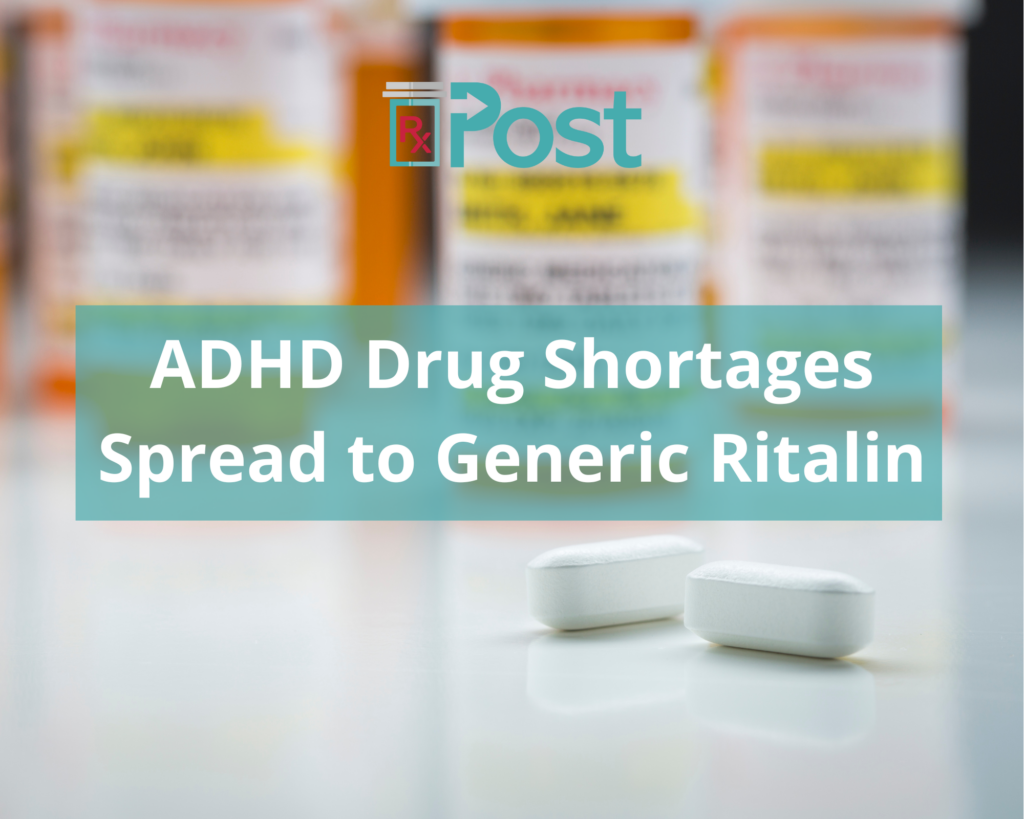Shortages of ADHD medications that started this summer with Adderall have widened to now include another major category of stimulants.
For the past two months, patients have had a hard time finding methylphenidate drugs, a class that includes Novartis AG’s Ritalin and Johnson & Johnson’s Concerta. A drug manufacturer and a major pharmacy told Bloomberg News there are issues with the supply of the drugs, though it’s unclear what’s causing the shortage.
There has been a shortage of ADHD stimulant medications, taken by millions in the US each month, since August, starting with amphetamine-based drugs like Adderall. The drug’s main manufacturer, Teva Pharmaceutical Industries Ltd., said it didn’t have enough workers to produce the pills. So wholesalers turned to other drug manufacturers, but they couldn’t keep up. Adderall remains in shortage, according to the US Food and Drug Administration.
Now, another type of ADHD medications — methylphenidate drugs — is in short supply, according to the University of Utah’s Drug Information Service, which tracks shortages. These drugs, along with amphetamines, also treat narcolepsy.
The service said in December that several extended-release methylphenidate drugs were on backorder from manufacturers and that the situation should improve in mid-January. Most of the drugs affected were generic versions of Ritalin and Concerta.
“We continue to see some intermittent supply issues” with methylphenidate medications, said Fraser Engerman, a Walgreens Boots Alliance, Inc. spokesperson. A CVS Health Corp. spokesperson said the company was not experiencing any “major supply issues,” and Walmart Inc. did not provide comment.
A spokesperson for Johnson & Johnson, whose Janssen Pharmaceuticals Inc. business operates Concerta, said that the drug is available but that the company was “aware of some supply challenges in the market.” The University of Utah service did not note a shortage in name-brand Concerta.
A Novartis spokesperson said there is a “temporary interruption” in the availability of one dose of Ritalin because of delays with the drug’s packaging, which the company expects to be resolved in a few weeks. They denied the University of Utah service’s report that a dose of Ritalin LA, its extended-release version, was on backorder.
The FDA is not reporting an overall shortage of methylphenidate drugs, and the agency has not received any notifications from drugmakers about manufacturing disruptions, which companies are required to report if they’ll meaningfully interrupt the supply of the drug, a spokesperson said.
Demand Outpaces Supply
These shortages make life more difficult for the people who rely on ADHD drugs daily. If a patient finds out a pharmacy is out of stock, they need to contact their healthcare provider and ask them to send the prescription to a different pharmacy. Pharmacies at times refuse to verify stock levels over the phone to prospective patients, leading to a frustrating game of phone tag between patients, pharmacies, and prescribers.
Nine patients told Bloomberg News that their pharmacies didn’t have their methylphenidate prescriptions in stock in November or December. Some patients were told by pharmacies that the drugs were on backorder because of a shortage and weren’t able to get their medicine for weeks.
Madi Hawes, a 20-year-old student at Brigham Young University in Provo, Utah, went into the pharmacy at her school’s health center to pick up prescriptions for Concerta and Ritalin. The Ritalin was there, but the pharmacy had only seven Concerta pills, not 30, like she was prescribed, she said.
“They weren’t going to have anything else until March,” Hawes told Bloomberg News. She went outside to her car and cried; the medicine allows her to organize her thoughts and manage her time, she said. Finals were just around the corner.
She was able to get through finals season by taking double or triple doses of Ritalin, but she won’t have enough to keep doing that when school starts again next week, she said. On top of classes, she’ll also be working as a teaching assistant and starting a public policy internship. “I don’t know what I’m going to do when my semester starts,” she said.
The pharmacy did not respond to a request for comment.
Different ADHD drugs are not interchangeable; patients who respond to Adderall might not be able to treat their ADHD as well with Ritalin, and switching from one medication to another requires a separate prescription.
Moreover, there are strict rules about how and when prescriptions can be written and filled since these medicines can be abused. Some of those rules were relaxed when the Covid-19 pandemic began, allowing more online prescribing. This was easier for patients but also led to the growth of telehealth companies that are now facing federal scrutiny for how their clinicians prescribed controlled substances like Adderall. Demand for ADHD medicines is now at an all-time high, driven by increased diagnoses.
Kaiser Permanente, which provides health insurance to more than 12 million people and also has pharmacies, is experiencing delays in receiving several ADHD medications, said spokesperson Marc Brown. Because of this, the company has imposed limits for some drugs – patients can only receive 30 days’ worth of pills at a time, even if they were prescribed more.
“We do not know when this situation will resolve as demand nationally continues to outpace the supply of these medications,” Brown said.
Original article is taken from Bloomberg here.


